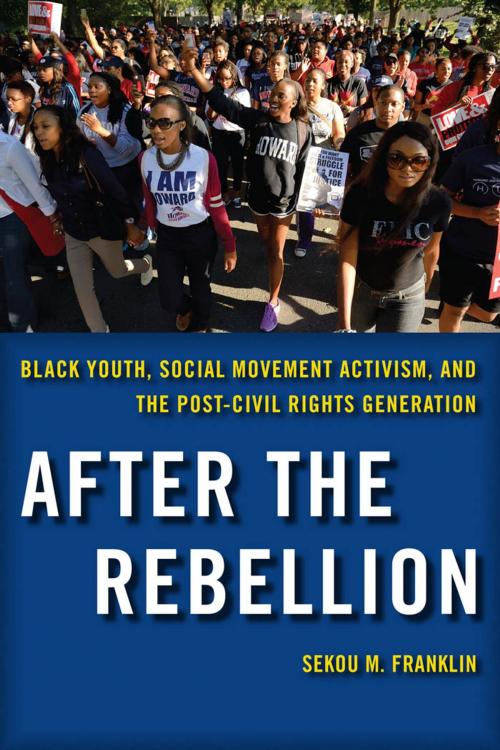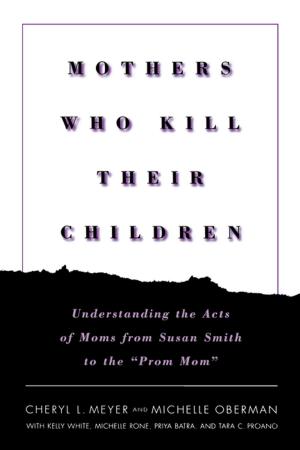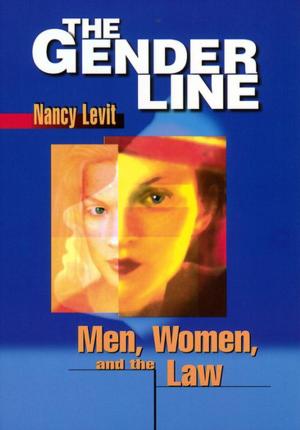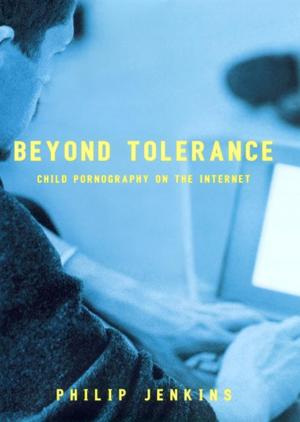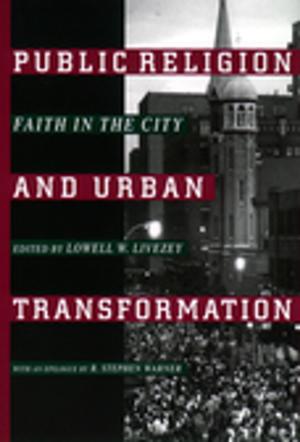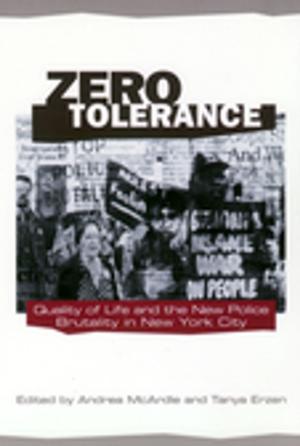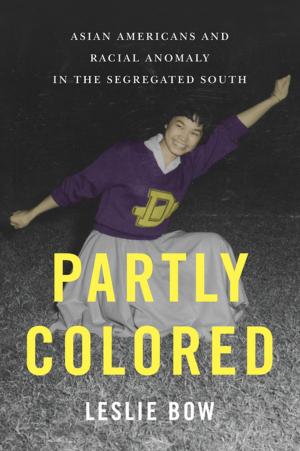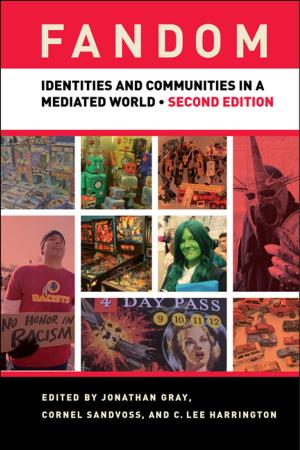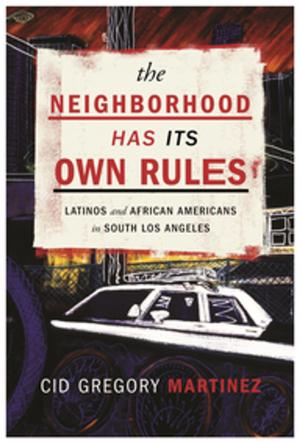After the Rebellion
Black Youth, Social Movement Activism, and the Post-Civil Rights Generation
Nonfiction, Social & Cultural Studies, Political Science, Politics, Civil Rights, Social Science, Cultural Studies, African-American Studies| Author: | Sekou M. Franklin | ISBN: | 9780814760017 |
| Publisher: | NYU Press | Publication: | July 11, 2014 |
| Imprint: | NYU Press | Language: | English |
| Author: | Sekou M. Franklin |
| ISBN: | 9780814760017 |
| Publisher: | NYU Press |
| Publication: | July 11, 2014 |
| Imprint: | NYU Press |
| Language: | English |
What happened to black youth in the post-civil rights generation? What kind of causes did they rally around and were they even rallying in the first place? After the Rebellion takes a close look at a variety of key civil rights groups across the country over the last 40 years to provide a broad view of black youth and social movement activism.Based on both research from a diverse collection of archives and interviews with youth activists, advocates, and grassroots organizers, this book examines popular mobilization among the generation of activists principally black students, youth, and young adults who came of age after the passage of the 1964 Civil Rights Act and the Voting Rights Act of 1965. Franklin argues that the political environment in the post-Civil Rights era, along with constraints on social activism, made it particularly difficult for young black activists to start and sustain popular mobilization campaigns.
Building on case studies from around the country—including New York, the Carolinas, California, Louisiana, and Baltimore—After the Rebellion explores the inner workings and end results of activist groups such as the Southern Negro Youth Congress, Student Nonviolent Coordinating Committee, the Student Organization for Black Unity, the Free South Africa Campaign, the New Haven Youth Movement, the Black Student Leadership Network, the Juvenile Justice Reform Movement, and the AFL-CIO’s Union Summer campaign. Franklin demonstrates how youth-based movements and intergenerational campaigns have attempted to circumvent modern constraints, providing insight into how the very inner workings of these organizations have and have not been effective in creating change and involving youth. A powerful work of both historical and political analysis, After the Rebellion provides a vivid explanation of what happened to the militant impulse of young people since the demobilization of the civil rights and black power movements a discussion with great implications for the study of generational politics, racial and black politics, and social movements.
What happened to black youth in the post-civil rights generation? What kind of causes did they rally around and were they even rallying in the first place? After the Rebellion takes a close look at a variety of key civil rights groups across the country over the last 40 years to provide a broad view of black youth and social movement activism.Based on both research from a diverse collection of archives and interviews with youth activists, advocates, and grassroots organizers, this book examines popular mobilization among the generation of activists principally black students, youth, and young adults who came of age after the passage of the 1964 Civil Rights Act and the Voting Rights Act of 1965. Franklin argues that the political environment in the post-Civil Rights era, along with constraints on social activism, made it particularly difficult for young black activists to start and sustain popular mobilization campaigns.
Building on case studies from around the country—including New York, the Carolinas, California, Louisiana, and Baltimore—After the Rebellion explores the inner workings and end results of activist groups such as the Southern Negro Youth Congress, Student Nonviolent Coordinating Committee, the Student Organization for Black Unity, the Free South Africa Campaign, the New Haven Youth Movement, the Black Student Leadership Network, the Juvenile Justice Reform Movement, and the AFL-CIO’s Union Summer campaign. Franklin demonstrates how youth-based movements and intergenerational campaigns have attempted to circumvent modern constraints, providing insight into how the very inner workings of these organizations have and have not been effective in creating change and involving youth. A powerful work of both historical and political analysis, After the Rebellion provides a vivid explanation of what happened to the militant impulse of young people since the demobilization of the civil rights and black power movements a discussion with great implications for the study of generational politics, racial and black politics, and social movements.
